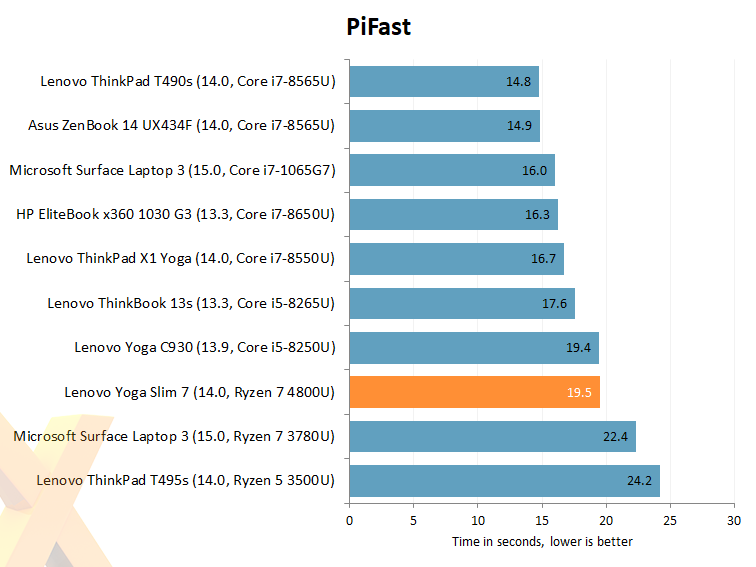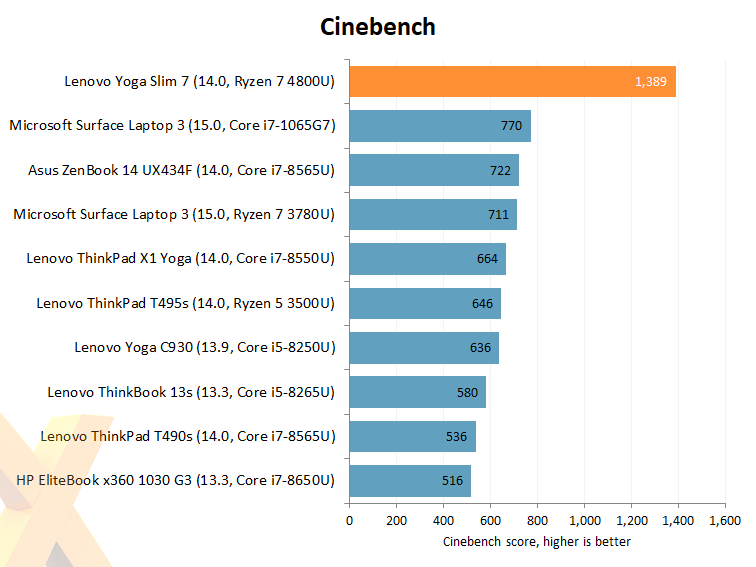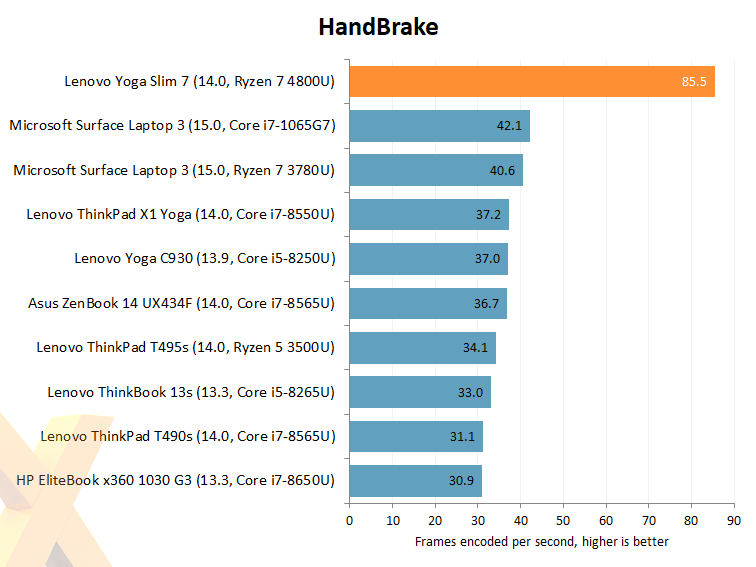Benchmarks: CPU

Intel-based Ultrabooks continue to rule the light-load PiFast test but it's worth knowing that AMD is closing the gap quickly. The Lenovo Yoga Slim 7 is the first Ryzen-powered Ultrabook to get under the 20-second barrier.
In practise everyday tasks are fast and the system is as responsive as any Intel machine we have tested.

Running the older version of Cinebench shows an obvious truth. The massive muscle of the 8C16T Zen 2 architecture destroys everything else here. It's so fast, in fact, that it beats practically all 15- and 17-inch gaming laptops in this test. Impressive, to say the least.
We have fewer results on Cinebench R20. If you care to look, the Lenovo Yoga Slim 7 is over twice as fast as anything else in this form-factor realm.

Again, this is not a typo - the Slim 7 really is twice as fast as anything else in the graphs. Stands to reason, too, as all others use a 4C8T topology for the CPU portion. To be fair to Intel, there is a 10th Gen Core i7-10810U chip featuring 6C12T but it's not widely available.
It's also worth knowing that all other laptops in this line-up feature 15W chips. That's true of the Ryzen 7 4800U in one form - it is configurable between 10-25W by the manufacturer - though Lenovo uprates this to the maximum 25W for Yoga Slim 7.
Delving further into this chip's workings under load, it boosts to an all-core 3.45GHz for around 15 seconds, followed by 2.8GHz for a further 75 seconds, finally settling on around 2.5GHz for extended load. This means it surpasses the 25W TDP briefly and consistently, though long-term power remains below this figure. This explains why the Yoga Slim 7 looks so good in short-term load tests such as Cinebench.


